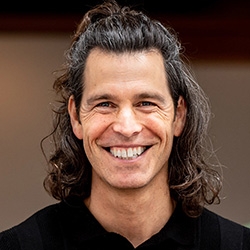
NVC Resources on Exercises and Practices
-
Trainer Tip: Asking for support may feel awkward and uncomfortable. In these moments, we may forget that everyone needs support. We may also forget that there may be many options available to us, even if what's available isn't our preferred source of support.
-
Trainer Tip: When we create situations that value one person’s needs at the expense of another, we open the door for someone to lose. Instead, look to see if you can speak openly and honestly, value the other person’s needs, and create solutions that value all stakeholder needs.
-
Trainer Tip: When someone acts in baffling ways we can either wonder about what’s going on with the other person, create our own stories about it (blame, resent, make assumptions), or inform ourselves by asking. This is an opportunity to learn something new.
-
Trainer Tip: When we acknowledge our met needs, rather than labeling the other person as good or bad, we achieve a clarity of mind that deepens our connection to ourselves and other people.
-
Trainer Tip: Identify one goal and take one small step toward achieving it today. It doesn’t matter how much or how often. The reward is in taking the first step, and then the second and third until you’ve attained your goal.
-
In Yoram’s 2021 course, participants delved deeper into their NVC practice so they were better prepared to meet conflict head-on. In this 5-session series, Yoram explores: the power of empathy to change the trajectory of heated conversations embracing the internal conflicts of the different parts of ourselves how to approach differing views peacefully the use of NVC to help let go of judgments how to confidently ask for what you want
-
We typically think of certain words as feelings when they can be judgements (eg. “abandoned”). Hidden within evaluative/judgement words are true feelings and needs (eg. if we think we’re abandoned we may feel lonely or hurt, and want togetherness or belonging). With this handout discover more hidden feelings and needs within the judgements that sound like feelings. Then download the card deck to further practice and learn.
-
CNVC Certified Trainer Miki Kashtan explains how using OFNR or "Classic NVC" is for practice, not real life situations.
-
Listening is a cornerstone of dialogue and a powerful metaphor for spiritual practice. When we’re willing and able to listen, we open a conduit that allows connection and understanding to happen.
-
Sitting with uncertainty can be very uncomfortable and evoke anxiety. Or it can be a practice that brings in the curiosity and inner spaciousness that allows for creative solutions to emerge, and that help us to relax our attachment to outcomes. Here's a closer look...











